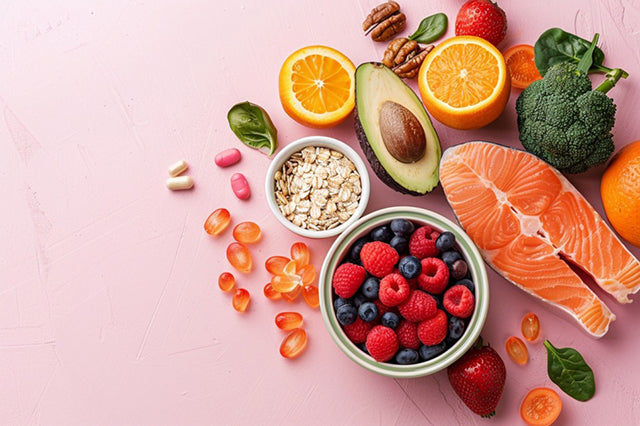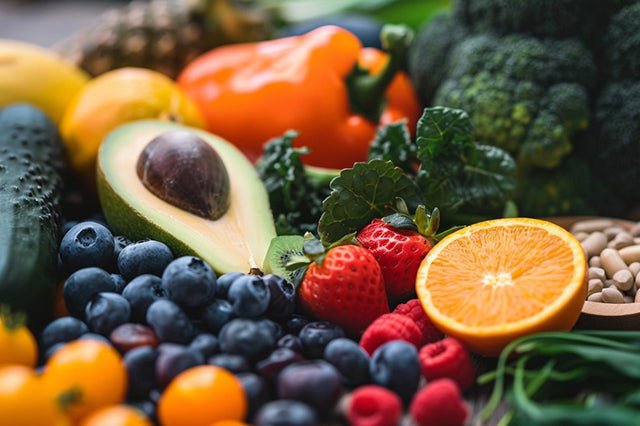The Growth Plate Powerhouse: Fueling Bone Development
The growth plates, called epiphyseal plates, are tiny builders within your bones. These specialized areas are located near the end of your long bones and are responsible for the lengthening process of your skeletal system. Therefore, these growth plates play a crucial role in dictating your final height.
Inside the Growth Plate Factory: The Production Line of Bone Lengthening
Cartilage Cell Multiplication
Growth plates are a type of flexible, smooth, rubbery, and semi-transparent tissues called hyaline cartilages, which constantly divide and replicate. These specialized new cells act as the raw materials needed for bone growth and development.
Matrix Magic
The multiplying cells produce a substance, called the extracellular matrix, which can be deemed as a scaffolding that provides structural support for the new bone tissues to form.
Ossification
As the cartilages mature, they undergo a process called ossification or the so-called cartilage bone-forming process. Minerals like calcium are gradually deposited within the cartilage matrix, converting it into hard and strong bone tissues. This extends the length of the bone at the growth plates
Blood Flow Matters
A network of blood vessels then starts to supply the growth plates with sufficient oxygen and essential nutrients needed for cell division and bone formation.

Growth Plate Closure: The Final Stage
Unfortunately, the growth spurt, when a child’s body goes through a rapid acceleration in growth and physical development, does not last forever. Depending on the gender, genetics, nutrients, and hormonal influences, the growth plates reach their final stage and start to fuse and close, typically around the age of 18 and 20.
Hormonal Triggers
The sex hormones in this stance are estrogen and testosterone, both of which play a pivotal role in triggering growth plate closure. The surge of these hormones during puberty and growth spurt have a two-edge effect.
On one hand, the two hormones are the primary drivers stimulating the growth plates to become more active. Specifically, not only do the increased activities of growth plates promote rapid bone development but they also contribute to bone maturation and escalating mineral density. On the other hand, sex hormones simultaneously signal the body to slow down the growing progress and eventually lead to the growth plate closure.
Fusion and Solidification
When the cells responsible for bone growth stop dividing as a result of growth plate fusion, the remaining cartilage material gradually merges with the surrounding bone. Over time, it transforms the growth plate into a solid piece of bone.
Function of Vitamin B2 (Riboflavin): The Engine of Cellular Processes
Vitamin B2, known as riboflavin, is a crucial component supporting growth and maintaining overall health. By performing various functions, vitamin B2 acts as a multifaceted tool, and here’s how it contributes:
Energy Production
Vitamin B2 is essential for the metabolism processes of the primary sources of energy. Speaking of that, it helps break down carbohydrates, fats, and proteins absorbed from food into usable and disposable energy to fuel your bodily functions, ranging from basic cellular activities to intense workouts.
Metabolism Booster
So, how does riboflavin increase energy production? It acts as a coenzyme, a vital enzyme involved in the metabolism activity of the body that effectively facilitates the conversion and utilization of food into energy.
Antioxidant Powerhouse
Vitamin B2, an antioxidant in the body, helps neutralize free radicals and harmful molecules that can damage cells and contribute to fast-paced aging. By protecting cells from oxidative stress, vitamin B2 promotes healthy cell function and development.
Red Blood Cell Maintenance
Vitamin B2 facilitates the production of red blood cells, which is vital for oxygen transport throughout the body.
Tissue Repair and Growth
Riboflavin is involved in creating new cells and tissues, including those in need of growth and repair. It aids in synthesizing DNA and RNA, which are necessary for cell division and development.
Healthy Skin, Hair, and Nails
Riboflavin is proven to maintain the vitality of your hair, skin, and nails, by supporting the synthesis of collagen. Collagen is the most abundant protein and the major component of the connective tissues in the body, ensuring a youthful appearance with elasticity, firmness, thickness, and resilience of these tissues.

Vitamin B2 and Growth: Does Vitamin B2 Make You Taller?
While it is not a magic bullet for increased height, vitamin B2 does support linear growth through its effects on cellular development.
Cellular Growth and Division
Riboflavin helps with the production of new cells and tissues, including bone tissues, which lays a foundation for creating new bones. In particular, riboflavin supports cell growth and division processes by facilitating the synthesis of not only proteins but also DNA and RNA, two genetic materials needed for cell replication.
Bone Growth and Maintenance
Ensuring adequate riboflavin is imperative for bone health and development. By its nature of replenishing the levels of collagen properties, vitamin B2 indirectly provides the framework for bone growth and strength. Additionally, it contributes to the metabolism of nutrients involved in bone health, such as calcium and phosphorus.
Conclusion
By aiding with DNA and protein synthesis, vitamin B2 ensures the body is equipped with adequate building blocks for rapid cell division, a hallmark of optimal growth plate activities. However, vitamin B2 does not directly affect the function of growth plates, yet provides the building blocks needed for cellular processes and subsequent bone growth in the plates.
This article also wants to shed light on the importance of a balanced diet rich in a wide variety of vitamins and minerals like vitamin D, phosphorus, or calcium. Because vitamin B2 is just one piece of the puzzle, and it alone cannot guarantee well-rounded overall health. Last but not least, a deficiency in vitamin B2 may disrupt the metabolic process within the growth plates, potentially affecting the conversion of cartilage cells into bone tissues.








